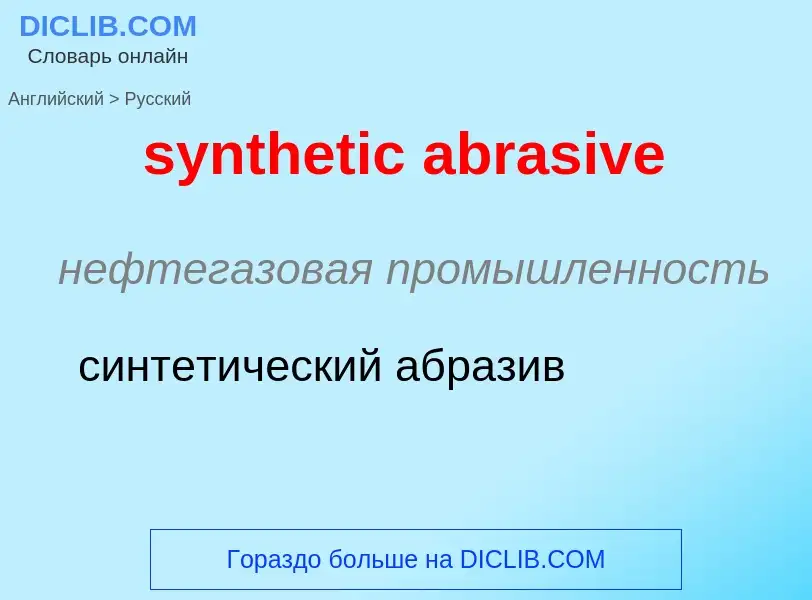Übersetzung und Analyse von Wörtern durch künstliche Intelligenz ChatGPT
Auf dieser Seite erhalten Sie eine detaillierte Analyse eines Wortes oder einer Phrase mithilfe der besten heute verfügbaren Technologie der künstlichen Intelligenz:
- wie das Wort verwendet wird
- Häufigkeit der Nutzung
- es wird häufiger in mündlicher oder schriftlicher Rede verwendet
- Wortübersetzungsoptionen
- Anwendungsbeispiele (mehrere Phrasen mit Übersetzung)
- Etymologie
synthetic abrasive - Übersetzung nach russisch
нефтегазовая промышленность
синтетический абразив
математика
аналитическое высказывание
Wikipedia
An abrasive is a material, often a mineral, that is used to shape or finish a workpiece through rubbing which leads to part of the workpiece being worn away by friction. While finishing a material often means polishing it to gain a smooth, reflective surface, the process can also involve roughening as in satin, matte or beaded finishes. In short, the ceramics which are used to cut, grind and polish other softer materials are known as abrasives.
Abrasives are extremely commonplace and are used very extensively in a wide variety of industrial, domestic, and technological applications. This gives rise to a large variation in the physical and chemical composition of abrasives as well as the shape of the abrasive. Some common uses for abrasives include grinding, polishing, buffing, honing, cutting, drilling, sharpening, lapping, and sanding (see abrasive machining). (For simplicity, "mineral" in this article will be used loosely to refer to both minerals and mineral-like substances whether man-made or not.)
Files are not abrasives; they remove material not by scratching or rubbing, but by the cutting action of sharp teeth which have been cut into the surface of the file, very much like those of a saw. However, diamond files are a form of coated abrasive (as they are metal rods coated with diamond powder).





![[[Immanuel Kant]] [[Immanuel Kant]]](https://commons.wikimedia.org/wiki/Special:FilePath/Immanuel Kant (painted portrait).jpg?width=200)
